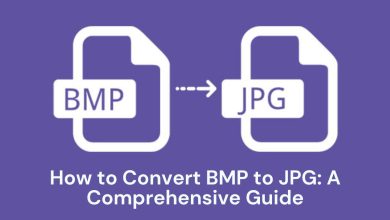
In simple words, Automated Procurement is the process to automate labor-intensive work, mundane tasks, and physical work that is usually dispensable and make the whole process more efficient.
By automating the procurement process, it is easier to achieve flexibility and independence to focus on many crucial tasks that would raise the productivity and smooth flow of work.
The automated Procurement process is time-efficient too as it speeds up the whole process of procurement and makes sure that there is no room for mistakes or errors.
The procurement process is essential to obtain the goods the services required for the proper and uninterrupted functioning of any business, despite the size of the organization.
A coherent procurement process is not just limited to purchasing goods and services, it also enables the organization to get the optimum benefit of its money’s worth.
There are various benefits of procurement process automation out of which are that earlier procurement was very paper-heavy and manual but after automated procurement, it has helped in maximizing cost saving. If you want to see an example, check Coupa’s solution: coupa.com/products/procurement/purchase-requisition

Various organizations should aim to make user-friendly processes that optimize the user experience of the company. Automation reduces the chances of errors when compiling the information hence decreasing the cycle time of work.
The employees of an organization can easily access information without navigating through multiple systems. It not only increases efficiency but provides complete control of the procurement cycle leading to overall improved productivity.
However, to understand why more organizations should switch to Automated procurement processes, it is important to understand its benefits in detail.
1. Cost-effective and practical
Cost-saving is one of the most effective outcomes of automation of the procurement process. While maintaining a meticulous record of past transactions, gives the chance to negotiate better deals in the future.
It also makes the process simpler to reach a large number of suppliers to find the most suitable choices for the long-term exchanges. This is a reason that makes it a more practical approach.
2. Easier accessibility:
With the whole data being just one click away, it makes your work uncomplicated. You can access the records of previous transactions easily, making the whole process of procurement transparent for both parties.
By maintaining pristine records, the automated procurement process allows you to refrain from any misunderstanding between you and the suppliers. Procurement software is generally uncomplicated and makes the work simpler to a whole new level.
3. Optimum utilization of resources and less manual work
By reducing unnecessary paperwork, the automated procurement process eradicates manual labor altogether. There could be chances of error when manual work is involved but automating the process makes the chances of any shortcomings highly unlikely.
The work is done with total accuracy and within the set time frames. The center of attention is shifted from inconsequential work to other high-priority tasks. It allows you to establish better communication between suppliers, organizations, and other stakeholders with proven data in place.
4. Ensures better service from the supplier
With better visibility and easier accessibility of all the records, it makes it easier to track down any detail thus making sure that the supplier doesn’t lag behind from their end.
The data is maintained through automated methods that can hold up all the records of any past exchange between the suppliers, making it effortless to evaluate any problems. Thus, making it crucial for the supplier to maintain the quality of the product and services.

5. Efficiency in records
The most undeniable benefit of switching to an automated procurement process is to raise the level of efficiency in every related aspect. All the necessary records and documents are on point and accurate.
This provides the freedom to raise any concern with the suppliers or other stakeholders in case of any discrepancy. Every cost is kept in the records for future references, making the task of carrying out the work without any disruption.
6. Better monetary management
While keeping the track of every payout, it is painless to keep money-related matters straightforward. The task of checking everything can be time-consuming.
But with automated functioning, it becomes easier to narrow down any unwarranted payments, making it trouble-free to abstain from such events in the future. It makes the lives of everyone involved in the work chain easier.
7. Lowers the risk factor
Since relying on manual labor comes with a lot of added risk, the introduction of automated procurement can dramatically drop the risk factor.
Humans are more likely to have any health-related problem or any other personal issues to deal with, issues that can affect their quality of work. Other factors like climate disasters, economic issues, or any other trouble can deteriorate the interest in work.
On the other hand, automated procurement doesn’t get influenced by any of these factors. It is methodical and lowers any risk factor.
8. Flexibility
The process of automated procurement allows mobility, making it easier to access the data from anywhere in the world and at any time.
You don’t have to stick to your desk to keep track of all the records and take care of all the work competently. So there can be no better alternative than automated procurement.
Learn more from business and read 5 Strategies to Boost Your Business Career and Make Money This Year.




